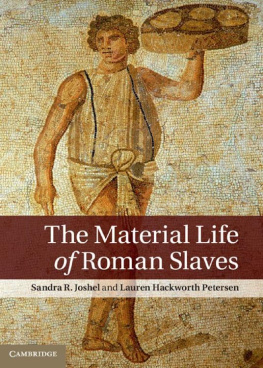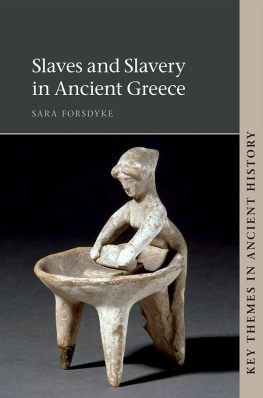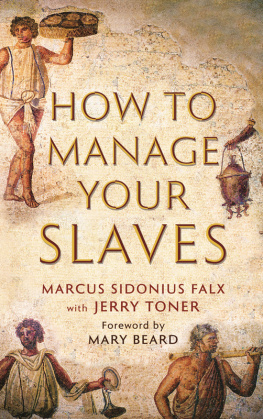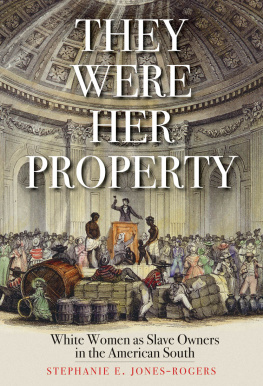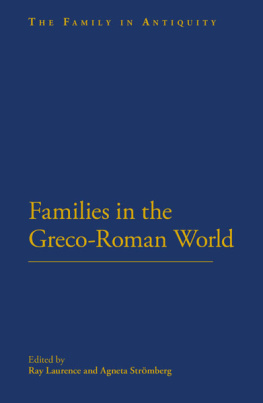First published 1998
by Routledge
2 Park Square, Milton Park, Abingdon, Oxon OX14 4RN
Simultaneously published in the USA and Canada
by Routledge
711 Third Avenue, New York, NY 10017
Routledge is an imprint of the Taylor & Francis Group, an informa business
1998 selection and editorial matter Sandra R. Joshel and
Sheila Murnaghan; individual chapters, the contributors
The right of selection and editorial matter, Sandra R. Joshel and Sheila Murnaghan; individual chapters, the right of the contributors to be identified as the Author of this Work has been asserted by them in accordance with the Copyright, Designs and Patents Act 1988
Typeset in Baskerville by Florencetype Ltd, Stoodleigh, Devon
All rights reserved. No part of this book may be reprinted or reproduced or utilized in any form or by any electronic, mechanical, or other means, now known or hereafter invented, including photocopying and recording, or in any information storage or retrieval system, without permission in writing from the publishers.
British Library Cataloguing in Publication Data
A catalogue record for this book is available from the British Library
Library of Congress Cataloging in Publication Data
Women and slaves in Greco-Roman culture / edited by
Sandra R. Joshel and Sheila Murnaghan.
Includes bibliographical references and index.
1. Women Greece History To 500. 2. Women Rome History To 500. 3. Slaves Greece History. 4. Slaves Rome History. 5. Women and literature Greece History. 6. Women and literature Rome History. 7. Slavery in literature History. 8. Civilization, Classical.
I. Joshel, Sandra R.
II. Murnaghan, Sheila.
HQ1134.W623 1998
305.40938dc21 9735631
ISBN 978-0-415-26159-3
To
Amy Richlin
and
Deborah H. Roberts
NOTES ON CONTRIBUTORS
Shane Butler is currently a fellow at the American Academy in Rome, where he is completing a dissertation on the written word in the Roman Empire. He is a graduate student at Columbia University.
Patricia A. Clark teaches in the Department of Greek and Roman Studies at the University of Victoria (British Columbia, Canada) and works primarily in the areas of family history, mental illness in antiquity, and ancient medicine.
Joy Connolly is Assistant Professor of Classics at the University of Washington with research interests in feminist theory, ancient education, and Greco-Roman literature of the imperial period. She has recently completed a dissertation on problems of gender, performance, and identity in Roman rhetoric and is currently writing on Roman elegy and Petronius Satyricon.
Nancy Demand is a professor in the Department of History at Indiana University, Bloomington. Her fields of interest are history of medicine, social history, and urban history. In the field of women and medicine she has published Birth, Death and Motherhood in Classical Greece (Baltimore 1994); Monuments, Midwives and Gynaecology, in Ancient Medicine in its Socio-Cultural Context, Vol. 1 (1996); and Medicine and Philosophy: the Attic Orators, in Proceedings, Xth International Hippocratic Colloquium (Erlangen 1996). She held an NEH Fellowship for 199091.
Steven Johnstone is a social and cultural historian whose work focuses on the fourth century BCE. He is the author of Disputes and Democracy: The Consequences of Litigation in Ancient Athens, a study of the social and political effects of litigation in Athens, which will be published by the University of Texas Press in 1999. He teaches Greek History at the University of Arizona.
Sandra R. Joshel teaches at the New England Conservatory of Music. Her research interests focus on women, gender, and slavery in ancient Rome. Her publications include Work, Identity, and Legal Status at Rome (Norman, Oklahoma 1992); The Body Female and the Body Politic: Livy's Lucretia and Virginia, in Pornography and Representation in Greece and Rome, ed. Amy Richlin (New York 1992); Nurturing the Master's Child: the Roman Child-Nurse, Signs 12 (Autumn, 1986). She is currently working on a book on the construction of gendered subjects in imperial narratives.
Kathleen McCarthy is an assistant professor of Classics and Comparative Literature at the University of California at Berkeley. She is currently completing a book on the relations of authority in Plautine comedy.
Denise Eileen McCoskey is an assistant professor of Classics and an affiliate of Black World Studies at Miami University (Ohio). She is working on several projects reflecting her interest in applying contemporary theory about difference, race, and ethnicity to the classical world, including a study of the intersection of femininity and foreignness in the rhetoric of Augustan Rome and an essay entitled Reading Cleopatra When Race Matters. She was awarded the John J. Winkler Memorial Prize in 1992.
Ian Morris is Professor of Classics and History and Chair of the Classics Department at Stanford University. He has excavated in Greece and Britain, and is currently publishing the Iron Age remains from Lerna. He is the author of Burial and Ancient Society: The Rise of the Greek City-State (Cambridge 1987) and Death-Ritual and Social Structure in Classical Antiquity (Cambridge 1992). He edited Classical Greece: Ancient Histories and Modern Archaeologies (Cambridge 1994), and co-edited A New Companion to Homer (Leiden 1997) with Barry Powell and Democracy 2500? (Dubuque 1997) with Kurt Raaflaub.
Sheila Murnaghan teaches in the Department of Classical Studies at the University of Pennsylvania. She is the author of Disguise and Recognition in theOdyssey (Princeton 1987) and of articles on Greek epic and drama and gender in classical culture. Her current work is on twentieth-century women writers and the classics.
Holt Parker received his Ph.D. from Yale University. He is Associate Professor of Classics at the University of Cincinnati and a fellow of the American Academy in Rome. He has written articles on various topics, including sex, slavery, Sappho, and Sulpicia. He is currently preparing an edition, translation, and commentary on the


